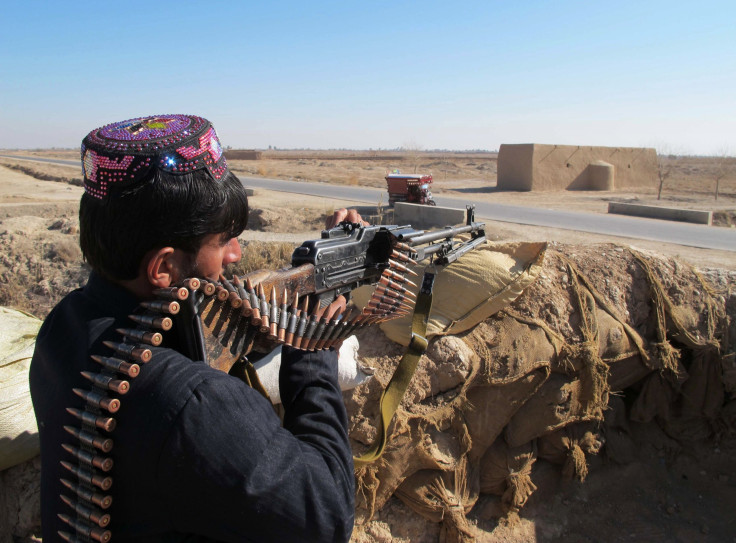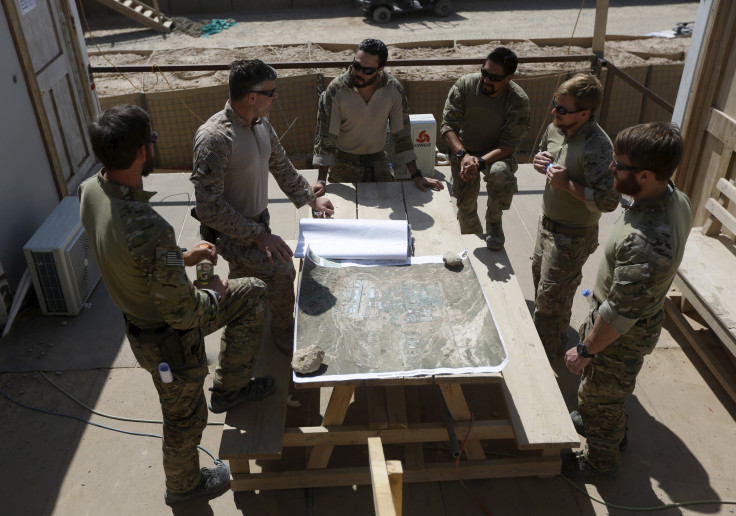Taliban Outguns Afghan, US Troops in Strategic, Opium-Rich Helmand Province

In the dusty agricultural town of Marjah in Afghanistan’s southern Helmand province, a team of U.S. special forces, along with members of the Afghan security forces, slipped quietly into position. The ensuing firefight against Taliban insurgents was long and brutal: The American troops were outnumbered by the Afghan militants and, in the intense battle, one U.S. soldier was killed and several others were wounded. But the fight did not end there — as a medevac helicopter swooped in to rescue the injured soldiers, Taliban fighters shot it down. It wasn’t until 24 hours later that U.S. forces recovered the helicopter and their troops.
The battle in Marjah Tuesday is representative of the Afghan security forces' struggle to retain control of Helmand after the withdrawal of U.S. and U.K. military personnel in October 2014. Over the past few months, the Taliban has made significant gains in the province and now controls land in almost every district: ten of Helmand's 14 districts are now under the militants' control. Afghan forces have so far failed to hold off the insurgents, even with the reinforcement of U.S. special forces, analysts told International Business Times.
“Helmand is only one of several [Afghan provinces] at great risk of falling,” said Marvin Weinbaum, a former analyst for Pakistan and Afghanistan in the U.S. Department of State’s Bureau of Intelligence and Research. “This has been the result of the inability of the Afghan security forces and the national army and the police ... They have been able to step up as the international community stepped down.”
Some analysts claim Helmand is on the verge of a complete takeover by the Taliban, while others say there is no way that Afghan security forces will let that happen. If the province fell to the insurgents, the impact would be felt not only by the Kabul government but also by its international partners, Weinbaum told IBT. "It would send all the wrong signals [to] the rest of the country, particularly in respect to the fact that there are so many other provinces much closer to Kabul that are equally on the edge."

U.S. combat operations officially ended more than a year ago, marking the end of a decade-long struggle to keep the Taliban at bay. During the U.S. and British occupation, the fiercest battles were in Helmand because the province was a Taliban stronghold, and strategically vital: the region is home to a vast swath of Afghanistan's poppy fields — and subsequent opium production — and its roads lead to the western part of the country and to Pakistan. During the period termed “the surge” by the U.S. administration — the injection of more U.S. troops into the country in 2009 — the Americans redoubled their efforts to hold on to Helmand, where the majority of U.S. and U.K troop losses took place.
“It is one province [that] the U.S. and Brits singled out as the tough area to control but one that would demonstrate that they could overcome the Taliban just about anywhere,” Weinbaum said. “The idea here was, 'If we can take them out in this province, if we can secure this province, others will fall in line.' It would have conveyed the fact that they had defeated the Taliban in [its] strongest location.”
But without a strong U.S. presence in Helmand, the security situation has rapidly deteriorated, according to David Sedney, former deputy assistant secretary in the Pentagon for its East Asia bureau. When U.S. troops withdrew, they left behind an Afghan force that was not sufficiently trained.
“When President Obama decided to withdraw [from] Afghanistan earlier than was advisable we had to pull out before we finished building those security structures,” Sedney said. “We made an almost disastrous decision. We don’t have any advisors in Helmand, only special forces to carry out raids.”
But Sedney suggests that complete capitulation is unlikely. In order to succeed, the Taliban would need to take complete control of the highway that runs through the province, which is almost impossible, Sedney said, since the provincial capital is still under Afghan military control .
“If the Afghan security forces [pay] more attention [to the Taliban insurgency] and bring more people in to defend the land there, it won’t fall,” Sedney said. “But it is going to be a tough year.”
© Copyright IBTimes 2025. All rights reserved.





















